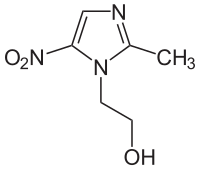
Photo from wikipedia
Olfaction and gustation are critical for the enjoyment of food but also have important metabolic roles, initiating the cephalic phase response that sets in train secretion of hormones important for… Click to show full abstract
Olfaction and gustation are critical for the enjoyment of food but also have important metabolic roles, initiating the cephalic phase response that sets in train secretion of hormones important for metabolism and digestion before any food is actually ingested. Smell and taste receptors are functional in the fetus and there is evidence for antenatal learning of odours. Despite enteral nutrition and metabolism being major issues in the care of very preterm infants, often little consideration is given to the potential role of smell and taste in supporting these processes, or in the role they may have in encoding hypothalamic circuitry in a way that promotes healthy metabolism in the post‑neonatal period. This review will discuss the evidence for the role of smell and taste in the newborn infant.
Journal Title: Early human development
Year Published: 2017
Link to full text (if available)
Share on Social Media: Sign Up to like & get
recommendations!